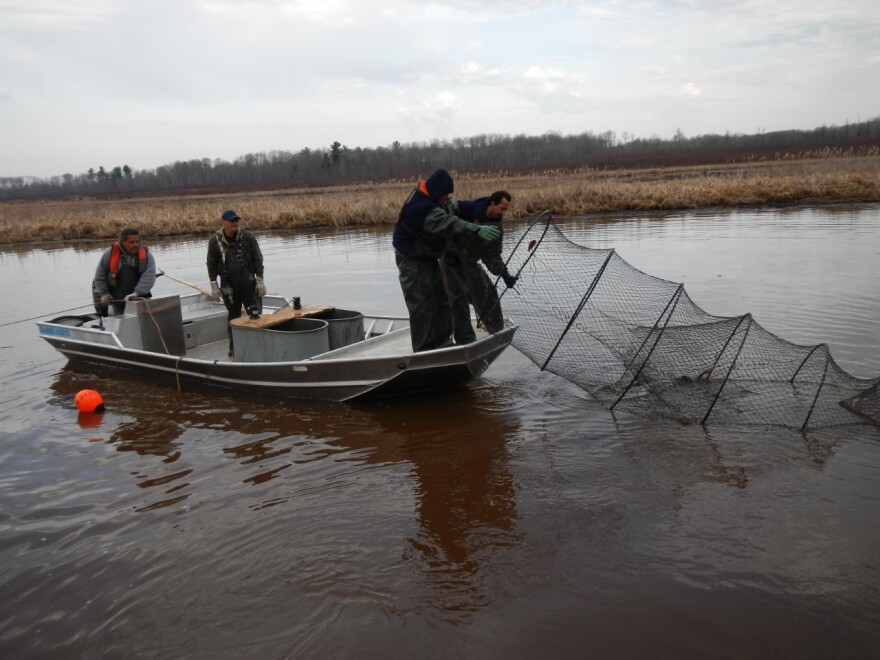Long, long ago before Europeans made themselves at home here, Indigenous peoples accumulate century upon century of experience as stewards of the land and waters.
Today, according to the Wisconsin Tribal Conservation Advisory Council, eleven tribal nations steward vast stretches of the state’s natural resources — including 450,000 acres of forest and tens of thousands of wetlands.

The Bad River Band of Lake Superior Chippewa is one of those nations.
Ask its tribal chairman Mike Wiggins, Jr. what biodiversity means to him and he conjures up images of the water-rich 124,000 acres that are home to his Tribe.
As the name signifies, the Bad River Band's tribal land in far northern Wisconsin bumps up to Lake Superior’s shore. Wiggins calls it “The Big Lake."
“We have the most power-packed critical habitat," he says.
Bad River tribal members have harvested nourishing wild rice for generations. Wiggins says fish also are beneficiaries of the complex ecosystem.
“Kakagon is an Ojibwe word. 'Kakagon' translates to 'walleye nursery'. When you look at the coming together of the wetlands, this flat shallow bay of Chequamegon Bay. And then you get into the Apostle Islands' realm with 200-plus-foot-deep channels, you have this unbelievable coming together of habitat that powers an incredible fishery,” he explains.

Wiggins’ attention turns inland and upstream in the watershed to what he calls "a living organism."
“You jump up in the river systems where the spawning beds, like at the Bad River Falls, and even higher where all of the trout are in the upper watershed, and you have this pristine metallic mineral realm that is conducting the groundwater recharge for the entire watershed.” He adds, “It’s propelling the drinking water, it’s propelling the artisanal systems that is remarkably intact.”

But his world as not all poetry and wonder. Throughout his tenure as tribal chair, Wiggins has been an outspoken critic of what he calls "rudderless approaches to stewarding essential resources."
"It’s understanding that we’re dependent on good clean ecosystems and drinking water and that we’re not on top of a pyramid of looking down upon Mother Nature as though we’re superior,” he says simply.
A decade ago he fought a proposed iron mine high in the Bad River watershed. Now Wiggins is standing up against a crude oil and natural gas liquids pipeline project.

“We stand up for our small tribal nation. We understand where our water comes from. Now and in the future, you’re going to see Bad River stand up for those places because we plan on being around a long, long time. It’s about life,” he says.
Wiggins says the resilience of his people is testament to a seventh-generation ethic.
“Your realtime decisions and actions are filtered through the impacts it will have seven generations forward. And there’s a prayer in there, a prayer that we keep the place intact, we keep the blessings that are here for us on this planet and that were here when we arrived, that we keep those things intact for all of the babies that are still on the way,” he explains.
"Your decisions and actions are filtered through the impacts it will have seven generations forward."Mike Wiggins, Jr.
You have to listen closely for the wisdom passed on from generation to generation, for a clue on how biodiversity resonates in Wiggins’ world.
What we call "species" — from the microscopic, to walleye and the white-tailed deer — in Wiggins view, they are all our relatives. “That a bit of a reminder, but it is real and that is the power of the land and the water and how this place can sustain us,” he says.

_








